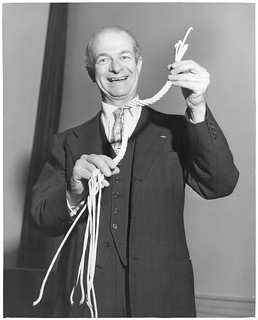However, I encourage tenure-track faculty members not only to think about achieving tenure but to be strategic and focused to ensure you are on the right path. Even if tenure is a few years off, new tenure-track faculty can take a few important steps now (other than, of course, work on publishing their dissertations, improving their courses and developing new research projects). Here are a few examples.
1. Check out the tenure documentation. What forms are you going to have to fill out when you go up for tenure? If possible, secure a copy of those forms so that you can see what information you will be asked to provide when you make your tenure case. Many colleges and universities have a mid-career or third-year review process, which is identical to the tenure review. That can help familiarize you with the process.
2. Develop an “aspirational tenure CV” for yourself. You should include in it all of the things you would like to have accomplished by the time you are up for tenure. If you are in the humanities, that probably will include a book and perhaps multiple articles. (If you are unclear about the expectations, this post has some suggestions for how to figure those out.) Also include conference presentations, service obligations, teaching accolades, invited lectures and anything else that you think will help you make your case for tenure. This will help you to see the bigger picture more clearly. Once you have your aspirational CV, use it to develop your long-term plan for tenure.
3. Create a list of your external reviewers. One of the best pieces of advice that I received on the tenure-track was to make a list of 12 people in my field whom I admire, and then to make it a point to contact them while I was on the tenure-track. If you write this list in your first year, you only have to contact two people per year over the next six years. You can reach out in a variety of ways. You can invite them to have coffee at a conference. You can send them a recently-published article of yours that you think they might find interesting. You can send them feedback or questions about an article or book that they recently published. I recommend contacting them in a way that feels natural or comfortable to you and that engages with your shared research interests. Most universities expect that external reviewers will be at similar or more highly ranked institutions than your own, so keep that in mind when you formulate your list.
4. Network to establish a national reputation. At many research universities, having a national reputation is a vital component of your tenure case. For that reason, it is important to make sure that other scholars are aware that you exist and know about your work. One example of a way to do this is to organize a panel at a national conference in your discipline. That will put you in touch with scholars in your field and increase your visibility. Another strategy is to invite prominent scholars to your campus. If your university has funds to do so, suggest people in your field to ask to deliver talks. (This also can permit you to check a name off your list from the previous suggestion.) In some universities, it is also expected that you will be invited to share your research at other campuses to demonstrate that you have a national reputation. Finally, a blog in your field publishes guest posts, try to publish your own on it. (In my field, Border Criminologies is an example of this kind of blog, and they accept guest posts.)
5. Figure out what kind of service you like. What is the right kind of service for you? Do you like serving on review panels? Do you like curriculum development? Do you like organizing seminars? Do you want to be on the athletics committee in the hopes of scoring free basketball tickets? Once you determine what kind of service you like, you may want to be proactive and search out those kinds of opportunities. That way, when other opportunities arise, you can say that you are already occupied with service tasks. It is, of course, crucial to know that you can say “no” to service requests, especially when your “no” is accompanied by a good explanation. When thinking about what kind of service opportunities you will seek out, be mindful of the expectations at your institution. Some institutions expect some form of departmental, university, community and national service. Other institutions are less concerned about national service yet have higher expectations for local service. Be clear about these expectations.
6. Teach effectively and efficiently. Robert Boice found that successful new faculty members spend no more than two hours preparing for each hour of class. Seek out advice from more seasoned colleagues about how to be a more efficient grader and more effective teacher. Ask your colleagues how much time they spend preparing for class and grading papers to make sure that your efforts are near the norm in your department. (See this blog post for additional tips.)
7. Know your evaluation criteria and use them as a guide. Your university may have straightforward criteria. When I worked at the University of Kansas, the evaluation criteria were: 40 percent research, 40 percent teaching, and 20 percent service, and I tried to make sure to spend about that percentage of time every week in each of those areas. (I actually printed out a document that said I would spend 3.2 hours a day on research, 3.2 hours on teaching, and 1.6 hours on service and stuck it on my wall.) Your university may not have such clear criteria, but you should be able to estimate how much value is given to each area and make an attempt to align your work hours with those expectations.
It can be overwhelming to be starting a new tenure-track position. But life on the tenure track does not have to be tortuous. Develop clear goals for yourself for tenure and work towards those a little bit every day. Six years is a long time to be stressed out and worried, so figure out ways that you can minimize that stress and worry. Do what you can to not only survive but also to thrive on the tenure track.
Reposted from: Inside Higher Ed


